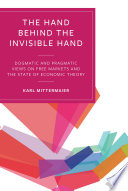Year
2017
Publisher
ANU Press
Type
BOOK
Category
Social Science
Language
English
Pages
523
ISBN
978-1-76046-132-4
Last Update
09-Sep-2024
Keywords
FOREIGN LANGUAGE STUDY / Oceanic & Australian Languages;HISTORY / Oceania;SOCIAL SCIENCE / Anthropology / Cultural
Related
See More
A democracia inconclusa

Ancient Lamps in the J. Paul Getty Museum,

Anne Frank�s Tree, Nature�s Confrontation with Technology; Domination; and the Holocaust

The Hand Behind the Invisible Hand

Hegemonía, cultura y educación

Dethroning historical reputations: universities, museums and the commemoration of benefactors